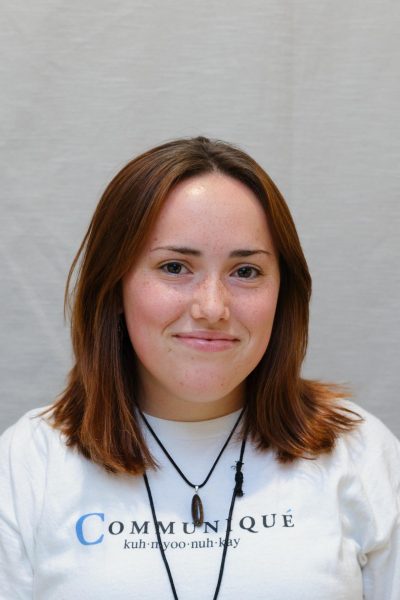Chatham University President Rhonda Phillips emailed all students, faculty and staff Jan. 29 about recently issued executive orders from President Donald Trump.
One of the orders, which has since been rescinded, would have paused all federal grants and loans, which could impact the ability for college students to pay tuition. A federal judge blocked the spending freeze the day after it was announced, citing that the executive action went beyond the authority of the Office of Management and Budget (OMB). While the spending pause has been prevented, the potential for it to go through has raised concerns for many Chatham students.
Kiera Baker ‘25, like many Chatham students, is reliant upon FAFSA, which helps to determine a student’s eligibility for financial support from the federal government for college tuition.“The possibility of losing that aid when I am a semester away from graduating, it’s terrifying,” Baker said.
Oona McKeegan ‘27 expressed similar concern for their ability to pay for college. “I fear lowering federal aid might completely decimate not only colleges and universities but also the job market as thousands of ex-students attempt to find entry level jobs,” McKeegan said.
Dr. Jennie Sweet-Cushman, Associate Professor of Political Science, said the rollout of the 2026-2027 FAFSA draft could be a good sign for the regular functioning of federal financial aid administration.
“Most of the things that might impact Chatham students (and students all over the country) would likely face legal challenges—which will, at the very least, tie things up in litigation,” Dr. Sweet-Cushman said in an email. “I wouldn’t worry about immediate impacts unless administrators start acting in anticipation of changes. It’s pretty common for institutions of all kinds to feel pressure to comply with the anticipated rules of a new regime out of fear. I wish I thought Chatham would resist.”
According to the National Center for Education Statistics, 91% of full-time Chatham undergraduate students receive federal loans, and 26% receive federal grants. With tuition costs rising, federal aid covers a majority of those costs for many Chatham students — and a federal spending freeze could impact whether or not they have access to higher education.
“There are a lot of unanswered questions about what kind of impact the loss of federal funds to myself or the university could have,” Baker said.
The email from the president’s office primarily referenced information from a question-and-answer document from OMB. “Federal student loans and Pell Grants would not be affected,” Dr. Phillips said in the email. “The document was silent on [Federal Supplemental Educational Opportunity Grants] and Federal Work Study…more guidance can be expected.”
Changes to education policy were expected following Trump’s claim that he would eliminate the Department of Education upon inauguration. Executive Director of the Pennsylvania Center for Women & Politics Dr. Dana Brown said that the potential abolishment of the Department of Education could mean a number of things – from purely bureaucratic changes to elimination of federal support for education.
“There is a lot, I think, for Chatham students to be on the lookout for in the next month or two. Based on what we know right now, as of today, student loans and funding [are] not being affected,” Dr. Brown said. “But of course, there is concern about what the future may hold as the Trump administration starts to review the Department of Education.”
With major changes occurring daily, largely through executive orders, many members of the Chatham community feel uncertain about the potential for broader impacts, and the actions of Chatham’s administration in response.
“Dr. Phillips did a great job at providing resources and being candid with the meager amount of information anyone has, not just Chatham,” said McKeegan. “I do wish that Chatham’s administration as a whole would acknowledge the possible dangers facing queer students and the general fearfulness that queer students, international students and students of color are facing under Trump’s administration.”
“While I am troubled by these decisions, I have to acknowledge the transgender students and those with immigration status here at Chatham, and how this situation places a burden on them,” Baker said. “They deserve answers, as do the rest of us.”
Sweet-Cushman reflected on what she felt was lacking in Dr. Phillips’ email.
“At a time when our community most needs to feel seen and supported, the lack of response is glaring,” she said. “The stark contrast in messaging from other university presidents has left me feeling embarrassed for Chatham and sad for our community.”
Dr. Brown said higher education professionals are relying on advocacy associations for assistance in navigating a turbulent political climate, and that assistance will inform how they can better inform and aid their students.
“For students, faculty, for staff, it’s a bit of a confusing time right now because things are changing rapidly in many different ways,” she said.
“While I understand that these are uncertain times—and I recognize that President Phillips rightly acknowledged this in her letter—it should not take guidance from higher education associations for us to know where our values lie,” said Sweet-Cushman.
According to the email from Dr. Phillips, “We will continue to track and review these and any new policy directives and executive orders that impact Chatham’s operations, programmatic, research and community actions. More info will be shared as details emerge.”
This is a developing story. Continuing checking web coverage for updates.





Tyler • Mar 21, 2025 at 4:15 am
Great job getting some info out about these issues. Your staff handled the article well, considering there just isn’t a whole lot of information. Thanks for writing this.